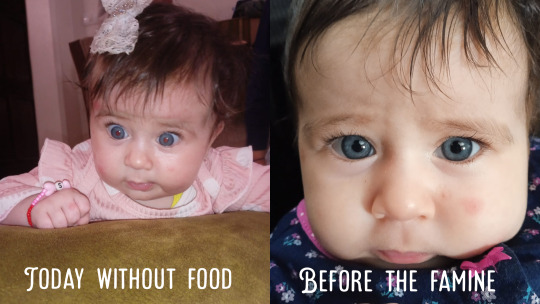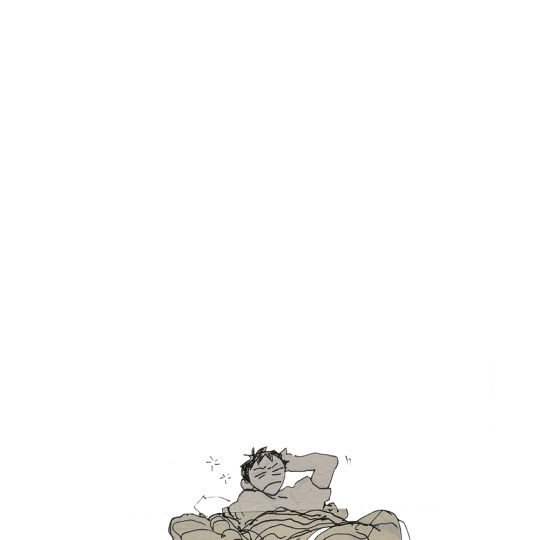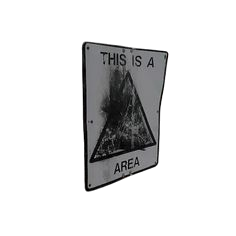Text
i’m sick and tired of people pretending that burger isn’t delicious just to clown on americans. america deserves the ridicule, but why’s burger catching strays? burger did nothing wrong
27K notes
·
View notes
Text


ATELIER BOZ
SHOXX Vol.122 (2003年4月号)
2003 Spring fashion catalog.
189 notes
·
View notes
Text

🇮🇷 Tehran, Iran - A man restores a well-known mural depicting the US flag with bombs and skulls, and the phrase “Down with the USA.”
11K notes
·
View notes
Text

Tumblr continues to be a deeply racist and overwhelmingly white website. Making fun of a Palestinian woman seeking help amid a genocide because your English speaking head is too far up your own ass to consider that other languages have words similar to yours but with entirely different meanings.
The name رحاب "Rehab" (The "H" is pronounced "Ḥ", not like the English "H" in the word rehabilitation. Here's what it sounds like.) is a very common feminine name in Arabic.
The least we can do for Rehab for having to put up with this nonsense is share her fundraiser and donate if possible. Rehab is dying from hunger.
Her campaign is vetter by @gazavetters and her number is #410 on the spreadsheet.
3K notes
·
View notes
Text
Imagine this little girl, Salma, dying of hunger in her mother's arms — a mother who has nothing to eat herself and can’t even breastfeed her child…

In Gaza, hunger has become more cruel than war, and Salma is just one of thousands of children suffering in silence. If you saw this child in front of you, crying and in pain from starvation, would you help her? Would you donate to save her life?
This is the link to donate, their family has been repeatedly vetted and is on GazaVetters list, #21!
1K notes
·
View notes
Text
Also preserved on our archive
By Bill Shaw
A new study in eClinicalMedicine has found that healthy volunteers infected with SARS-CoV-2 had measurably worse cognitive function for up to a year after infection when compared to uninfected controls. Significantly, infected controls did not report any symptoms related to these cognitive deficits, indicating that they were unaware of them. The net effect is that potentially billions of people worldwide with a history of COVID-19, but no symptoms of long COVID, could have persistent cognitive issues without knowing it.
The study’s lead author, Adam Hampshire, professor of cognitive and computational neuroscience at King's College London, said:
"It … is the first study to apply detailed and sensitive assessments of cognitive performance from pre to post infection under controlled conditions. In this respect, the study provides unique insights into the changes that occurred in cognitive and memory function amongst those who had mild COVID-19 illness early in the pandemic."
This news comes as pandemic mitigation measures have all but been abandoned by governments across the globe. Public health practice has been decimated to the point where even surveillance data on SARS-CoV-2 infections and resulting hospitalizations, deaths, and other outcomes are barely collected let alone published.
The data that are available indicate, per the most recent modeling from the Pandemic Mitigation Collaborative (PMC) on September 23, that since the beginning of August there have been over 1 million infections per day in the US alone. This level of transmission is expected to persist through the remainder of September and all of October. For the months of August through October, these levels of transmission are the highest of the entire pandemic

The study on cognitive deficits has been shared widely across social media, with scientists and anti-COVID advocates drawing out its dire implications.
Australian researcher and head of the Burnet Institute, Dr. Brendan Crabb, who has previously advocated for a global elimination strategy to stop the pandemic, wrote:
"Ethical issues aside, this is a powerful addition to an already strong dataset on Covid-driven brain damage affecting cognition & memory. Given new (re)infections remain common, this work… should influence a re-think on current prevention/treatment approaches."
The study enrolled 36 healthy volunteers. These individuals had no history of prior SARS-CoV-2 infection, no risk factors for severe COVID-19, and no history of SARS-CoV-2 vaccination. The researchers determined whether the volunteers were seronegative prior to inoculation, meaning that they had no detectable antibodies to SARS-CoV-2. If such antibodies were present, it would indicate past infection or vaccination.
These procedures resulted in a total of data from 34 volunteers being included for analysis. Two volunteers were excluded from analysis because they had seroconverted to positive for SARS-CoV-2 antibodies between the time of screening and inoculation. Notably, these two volunteers participated in all subsequent study activities, enabling a sensitivity analysis of the results that included them.
The researchers inoculated all 36 volunteers with SARS-CoV-2 virus in the nose and then quarantined them for at least 14 days. Volunteers only returned home once they had two consecutive daily nasal and throat swabs that were negative for virus. Thus, those volunteers who had an infection after inoculation spent the duration of their infection in quarantine. This quarantine was required by ethical study protocols, in order that the study itself not increase community transmission of the virus.
The researchers collected data on the volunteers daily during quarantine and at follow-up visits at 30, 90, 180, 270, and 360 days post-inoculation. The assessments included body temperature, viral loads from throat and nasal swabs, surveys on symptoms, and computer-based cognitive tests on 11 major cognitive tasks. The cognitive testing varied the particular exercise for each of the 11 tasks to avoid learning and memorization of solutions in subsequent sessions. Nevertheless, some tasks were more prone to learning so the researchers also studied the effect of infection on “learning” vs. “non-learning” tasks.
Of the 36 inoculated volunteers, 18 became infected and developed COVID-19 and 16 did not. The two groups did not differ significantly in key demographics. No volunteers required hospitalization or supplemental oxygen during the study. Every volunteer completed all five follow-up visits. 15 volunteers acquired a non-COVID upper respiratory tract infection in their community between the end of quarantine and the fifth visit at day 360.
The researchers found that the infected group had significantly lower average “baseline-corrected global composite cognitive score” (bcGCCS) than the uninfected group at all follow-up intervals. At baseline, the two groups did not differ significantly. The difference between the two groups did not significantly vary by time, meaning that the infected group’s bcGCCS did not improve during the nearly year-long study.
Because the bcGCCS was a composite based on individual scores for the 11 cognitive tasks, the researchers also looked at which tasks in particular were impacted. They found that the most affected task was related to immediate object memory, in particular, recall of the spatial orientation of the object. There was no difference in picking the correct object itself, just its spatial orientation. This means that infected individuals had a hard time choosing the correct spatial orientation of the object they had just seen, for example, erroneously picking a mirror image of the object they had just seen.
The results were not different based on sex, learning vs. non-learning tasks, or whether individuals received remdesivir or had community-acquired upper respiratory infections.
Because the investigators controlled for so many factors including the strain of SARS-CoV-2, timing of infection, quarantine, and lack of prior infection and vaccination, the study provides high confidence that SARS-CoV-2 infection was responsible for the cognitive defects. The control of the timing of infection also enabled clarification of whether and when cognitive deficits occurred and improved. The differences between the groups were apparent by day 14 of quarantine and as noted previously, the deficits in the infected group did not improve let alone resolve.
The symptom surveys did not differ between the two groups. None of the volunteers, infected or uninfected, reported subjective cognitive issues or symptoms. Thus the infected volunteers with measurable cognitive deficits at one year post-infection were not aware of these deficits.
The study reaffirms prior research into persistent cognitive deficits and brain damage associated with COVID-19, including other studies which have found deficits among patients without symptomatic long COVID. Building upon this prior research, the latest study indicates that basically every single unvaccinated individual with a history of acute COVID-19 is at risk for persistent, measurable cognitive deficits.
Given that other studies have shown that vaccination reduces one’s risk of long COVID by roughly half, similar measurable cognitive deficits are likely prevalent among vaccinated people who suffer “breakthrough” infection, albeit likely at reduced rates of decline.
The study raises the urgent questions about the level of protection provided by vaccination, whether strains since the original “wild type” SARS-CoV-2 strain have similar effects on cognition, and what is the impact of these cognitive deficits on people’s performance at home, work, and school.
The study also adds to the large body of damning evidence that the ruling class’ “forever COVID” policy is of immense criminal proportions. Enabling a dangerous, mind-damaging virus to circulate among humanity worldwide represents a scale of inhumanity and dereliction of duty that is practically unfathomable. The malignity of this intentional policy is underscored by the current situation where the U.S. alone has had over 1 million new infections per day since August, with levels not projected to drop below 1 million until November.
The working class must deepen the struggle to replace the capitalist system that prioritizes profit over lives with a world socialist society that places human needs first.
Study Link: www.thelancet.com/journals/eclinm/article/PIIS2589-5370%2824%2900421-8/fulltext
460 notes
·
View notes
Text
Oh wonder! Only after 12 days of war between Israel and Iran, Trump intervened and stopped it. Wow, this is it! Israel was subjected to severe and harsh blows from Iran to the point that Israeli soldiers said on social media that they woke up and thought they were living in Gaza after the destruction that occurred in Tel Aviv. Unfortunately, Trump and the United States cannot stop a war that has lasted 628 days of genocide in Gaza.
521 notes
·
View notes
Text
odysseus tying himself to the mast but he's doing some proto shibari type shit to make his tits look really good and his crew isn't saying anything but it's kind of hard not to notice
28K notes
·
View notes
Text

Tamir Rice should be celebrating his 23rd birthday today.
Instead, his life was stolen at just 12 years old when he was killed by an Ohio police officer.
We are thinking of you today and always, Tamir. Sending so much love to your family. 🤍
1K notes
·
View notes
















